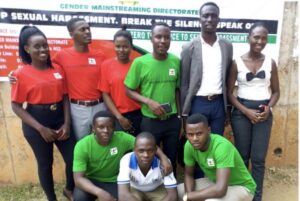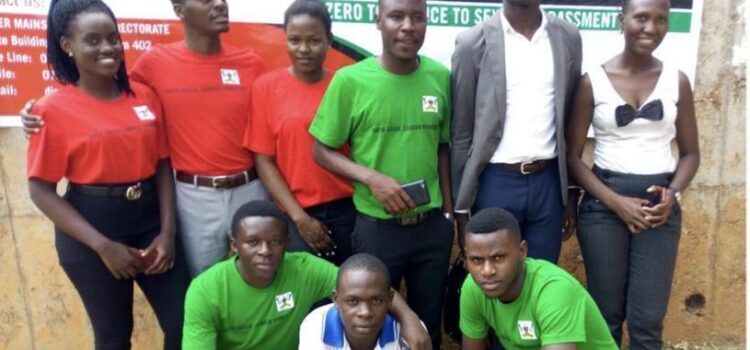During his term as President of the College of Computing and Information Sciences (COCIS) and Chairperson of College Presidents at Makerere University, Kidega Ogenrwot Moses stood at the frontline of a tough but necessary battle: fighting sexual harassment within the university system. Kidega chose to speak out not just in words, but through policy advocacy, awareness campaigns, and survivor-centered engagement. His leadership marked a turning point in how student leaders could take action against a deep-rooted challenge in higher education institutions.
Studies have consistently shown that sexual harassment remains a persistent issue in Ugandan universities, particularly against female students. According to a 2018 report by the Gender Mainstreaming Directorate of Makerere University, at least 1 in 4 female students had experienced some form of sexual harassment on campus.

The Harsh Reality at Makerere
Studies have consistently shown that sexual harassment remains a persistent issue in Ugandan universities, particularly against female students. According to a 2018 report by the Gender Mainstreaming Directorate of Makerere University, at least 1 in 4 female students had experienced some form of sexual harassment on campus.
More recent figures from ActionAid Uganda revealed that over 50% of female students in public universities had encountered unwanted sexual advances, often from individuals in positions of power, lecturers, administrators, or even fellow students.
As President of COCIS, Kidega implemented and championed several bold measures aimed at preventing harassment, protecting students, and holding perpetrators accountable:
- Student-Led Reporting Mechanism: He introduced an anonymous feedback and reporting system at COCIS, allowing victims or witnesses to report cases confidentially. This approach drastically reduced fear and stigma around speaking out.
- Peer Awareness Campaigns: Under his leadership, he launched a strong campaign was launched featuring seminars, printed materials, and digital campaigns focused on consent, power dynamics, and where to seek help.
“We had to take the message to the lecture rooms, to the corridors, to WhatsApp groups. Sexual harassment thrives in silence. We broke that silence.” – Kidega - Pushing for Disciplinary Reform: He advocated for disciplinary action against offenders within staff or student leadership and supported survivors in navigating the university’s legal processes often serving as a voice in student tribunals. He further collaborated with other colleges and University stakeholders to take action in conjuction with the “zero tolerance” policy on sexual harassment at Makerere University.
By the end of his term, the efforts had tangible results:
-
An increase in reported cases at COCIS showed that students felt more confident and supported in speaking out. There was also more vigilance and disciplinary of offenders.
-
Kidega put his tech skills to work in reporting of cases and implementing suggestions from the students.
-
Kidega was recognized by student bodies and women’s advocacy groups for his courage and principled leadership.
“Leadership isn’t about being loud. It’s about standing firm when it’s most uncomfortable. Fighting sexual harassment required that strength.” – Kidega added.
-





